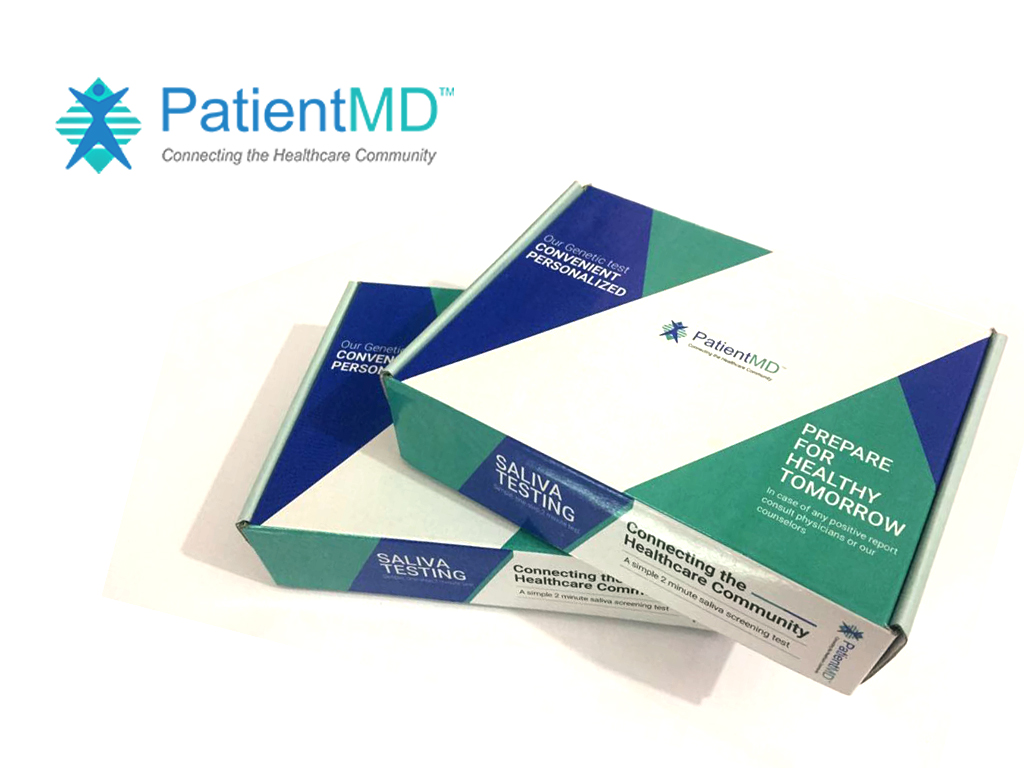Infertility is defined as failure to conceive in the setting of regular intercourse within 1 year.Approximately one in six couples wishing to start a family fall into this category.It is guessed that in about 10% of female infertile subjects, genetic abnormalities could be present.
Female Infertility Test
Genetic test for Female infertility
PCOS, Premature ovarian failure, improper gonad development, early menopause and many more issues may have a genetic basis
The test is also recommended for couples facing multiple failed IVF transfers, low sperm count, reoccurring miscarriage, low sperm mobility to make informed decisions for egg donor selection.
The test is also recommended for females where menstruation is irregular or irregular or absent; where there is a known fertility problem in the family, she is consider having a baby pst 35 years of age
Genetic test for Female infertility
Genetic basis of female infertility may be there for upto 10% of cases. Hereditary factors may bring infertility at a lower age than the normal population. Predisposing genetic factors may make one more prone to these disorders.

A detailed analysis of your genes
Easy to understand report explained by our genetic counsellor
Guidelines to follow for increasing chance of fertility
Guidance to make informed decisions about alternative fertilization methods
Price List:
Female Infertility Test:Here’s what you’ll find in your report
- Clear, actionable information on your genetic risk for Female Infertility
- Personalized Female Infertility risk information
- How you and your healthcare provider can use your results to tailor your health plan
- Clear, actionable information on your genetic risk for Female Infertility
- Personalized Female Infertility risk information
How it works
Register and Order your test
Choose the test you desire and order. Our genetic counsellor helps you fill up a detailed.
Send your sample and get the result
Receive a simple saliva sample collection kit and send us the sample from convenience.
Prepare for healthy tomorrow
In case of any positive report consult physicians or our sample from convenience.
We keep supporting you
You are also encouraged to store the enormous genetic data for re-interpretations later with increased knowledgebase and easy retrieval to save the cost of re-sequencing.
Frequently asked questions
This is a specialized test that tries to identify changes in chromosome, genes or proteins in an individual. About 20000 genes are there, each of which may have a few hundreds two million bases. Genetic tests try to identify changes in copy number of genes, or individual changes in each of the DNA bases in a target region to understand if those changes will cause any disease.
The term SNP stands for Single Nucleotide Polymorphism.Each of the SNPs represent a change in a nucleotide or DNA base. Occurrence of SNP is normal, occurring once in every 300 nucleotide bases, but all such changes do not lead to a disease condition. It is important to assess the effect of SNP in a targeted gene to predict the possibility of a disease.
Nucleotide sequencing technology aims at deciphering the sequence of nucleotides in a given zone of DNA or RNA strand. Next-generation sequencing (NGS), also known as high-throughput sequencing is a massively parallel or deep sequencing method which has revolutionized genomic research in these days. This is a rapid method which aims at deciphering small base changes (substitutions), insertions and deletions of DNA. NGS can be used to investigate , not only few targeted genomic regions, but the entire genome ( whole genome sequencing) or only the coding regions or expressed regions of genome ( whole exome sequencing).It took nearly 3 billion USD to create the first draft of human genome. These days NGS facilities are aiming at sequencing whole genome of an individual at 1000 USD range.
Molecular diagnostic testing in an asymptomatic individual is becoming increasingly sophisticated in these era of advanced sequencing and data analysis technologies. As the genomic landscape of an individual can be accessed at a high resolution and accuracy, it now possible to assess the minute variations in genome of a person and compare the changes with the standard reference of human genomes. Every individual’s DNA sequence is unique, but the uniqueness often may contain some changes that may relate to specific disorders. These changes may be passed on the next generations too.
We may inherit more than 4000 diseases. Several of them are rare but may be fatal in nature. Some may not be fatal but may have severe consequences like infertility. The genetic disorders may include various kinds of cancer, heart diseases ( major cause of premature cardiac death), cystic fibrosis, Huntington’s Disease and many more.
> To diagnose a disease and find the causative mutation
> To predict if the disease will get worse or not (prognosis)
> To enable doctors to manage the disease more effectively and use the best treatments available
> To search for the same genetic change in other family members and give genetic advice to the family
> The genetic tests identify if there are mutations or not and helps in bringing relief about inherited diseases to uncertain people.
> Will help doctors in making specific recommendations for treatment or monitoring.
> Provide guidance about lifestyle modifications such as diet and exercise regimes to lower the chances of diseases.
> create awareness about inherited disease running in the family.
Genetic testing and results:
> May lead to a range of mixed emotions like fear, anxiety and guilt while waiting for the result.
> In many cases, complete prevention may not be possible.
> The results are not conclusive thereby failing to identify any genetic modification.
> The test just identifies the chance of an inherited risk while overlooking the impact of environmental issues.
> Test results may reveal some family secrets involving paternity and adoption.
PatientMD understands your requirement for privacy and deals with the data collection, handling and storage through best practice regimes like:
> Only the relevant information’s are collected
> Information is stored with high level of security.
> Option for storing genetic data after report generation with your consent to provide facility of further testing is available.
> To know more about our privacy policy please visit https://patientmd.com/privacy/ or contact our customer care
Your health-related information remains protected with our voluntary compliance with Health Insurance Portability and Accountability Act (HIPAA),1996 of USA to maintain high standards of security. Your data remains stored and analyzed in high secure servers in US and it is compliant with required legal provisions.
If you find that a genetic disorder runs in your family or suspect so, a genetic test may clear you of the doubts and either bring relief to your anxiety or help you adopt required screening programs or preventive steps. Talk to our expert genetic counselors to assess if you really need a genetic test and then take an informed decision.
There may be more than 4000 inherited disorders. Several of them are fatal but rare. Often the physician or genetic counselor may suggest testing for variances in a gene or set of genes that are not part of the gene panels listed in our products. This may mean looking for responsible genes for any other disease or additional genes to be incorporated for a specific panel. All parts of human genome is easy to capture and accuracy of sequencing varies between genes. We may consider searching for variations for these specially ordered genes and also look at its feasibility. Variances found in poorly annotated genes may not be reported with clinical significance. This is custom panel, a personalized order for sequencing particular regions not covered in the mentioned genetic tests.
You may learn more about the genetic testing service of PatientMD here.
These external sources may serve as excellent points to Strat learning about genetic testing:
> Genetics Home Reference. (https://ghr.nlm.nih.gov/primer/testing/benefits)
> Wiki page on Genetic testing (https://en.wikipedia.org/wiki/Genetic_testing)
> National Cancer Institute (https://www.cancer.gov/about-cancer/causes-prevention/genetics/genetic-testing-fact-sheet)
If you are a doctor
click here
If you are an employer
Get to know about our specialized services for your employees
click here



